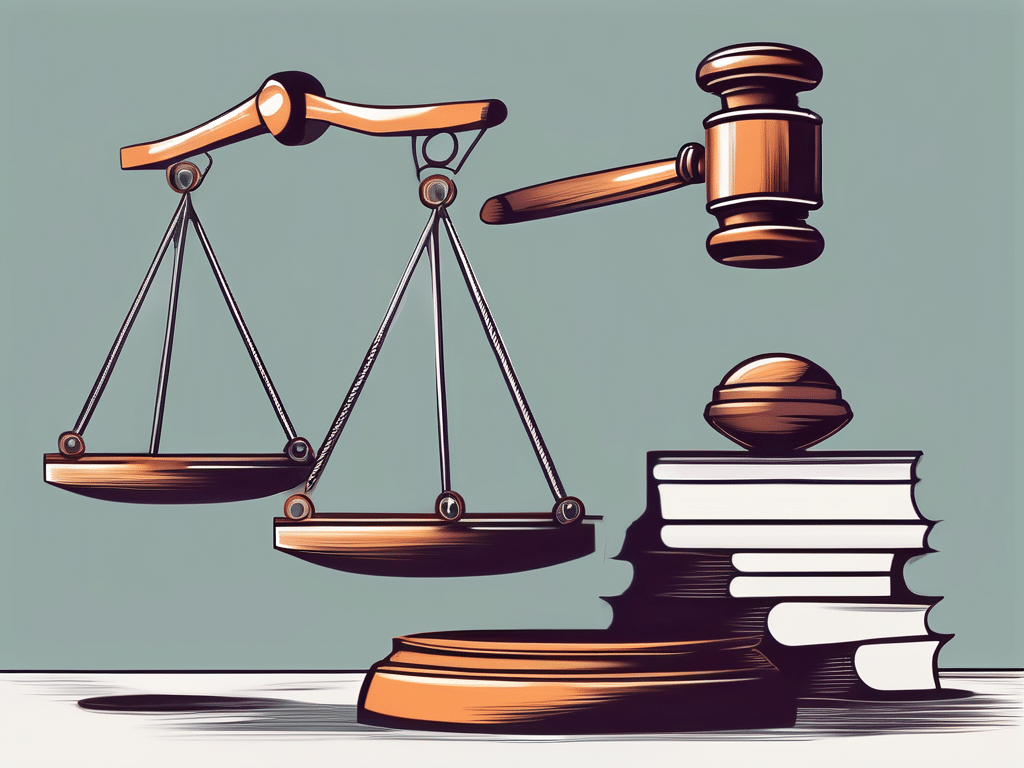Starting a business can be an exhilarating and challenging experience. As a startup owner, you wear many hats and juggle numerous responsibilities. However, one role that should not be overlooked is that of a business lawyer. Having a trusted legal advisor by your side can make a world of difference in navigating the complex legal landscape and protecting your startup’s interests.
Understanding the Role of a Business Lawyer
A business lawyer plays a crucial role in providing legal guidance and support tailored specifically to startups. They possess the experience to help you understand the legal requirements and obligations involved in running a business.
Moreover, a skilled business lawyer can offer strategic advice on various aspects of business operations, such as intellectual property protection, employment law compliance, and regulatory matters. By staying abreast of the ever-changing legal landscape, a business lawyer can help startups navigate complex legal issues and make informed decisions to foster growth and success.
Legal Guidance for Startups
A business lawyer can provide invaluable guidance to startups, steering them through the legal challenges they may encounter. From choosing the right business structure to drafting contracts and agreements, a lawyer ensures that your startup operates within the confines of the law.
Furthermore, a business lawyer can assist startups in understanding the implications of different legal structures, such as sole proprietorships, partnerships, corporations, or limited liability companies. By tailoring their advice to the specific needs and goals of the startup, a lawyer can help establish a solid legal foundation for long-term success.
Contract Review and Negotiation
Contracts are the lifeblood of any business. A business lawyer can review contracts, identifying any potential issues or unfavorable terms that may put your startup at risk. Additionally, they can help negotiate and draft contracts that protect your interests and mitigate potential legal disputes.
Moreover, a business lawyer can provide insights into industry-specific practices and standards, ensuring that contracts are comprehensive and enforceable. By leveraging their legal experience, a lawyer can help startups build strong relationships with clients, suppliers, and partners while safeguarding their rights and interests.
The Importance of Legal Compliance for Startups
Compliance with laws and regulations is crucial for the long-term success of any startup. Failure to comply with legal obligations can have severe consequences, putting your startup’s reputation, finances, and future at stake.
Startups operate in a dynamic and complex legal landscape, where regulations can vary based on the industry, location, and business model. It is essential for startup founders to prioritize legal compliance from the outset to avoid potential pitfalls down the road. By proactively addressing legal requirements, startups can build a solid foundation for sustainable growth and mitigate risks associated with non-compliance.
Navigating Regulatory Requirements
A business lawyer can guide you through the myriad of regulatory requirements that startups face. From obtaining necessary licenses to navigating industry-specific regulations, they ensure that your startup stays on the right side of the law.
Furthermore, staying abreast of regulatory changes and updates is crucial for startups to adapt their operations accordingly. By partnering with legal professionals who focus on startup compliance, founders can stay informed about evolving regulations and proactively adjust their business practices to remain compliant.
Preventing Legal Disputes
Legal disputes can drain valuable time, money, and resources. A skilled business lawyer can help you identify potential legal risks and take proactive measures to prevent disputes before they arise. By implementing sound legal strategies, you can safeguard your startup’s reputation and minimize the chances of costly litigation.
Moreover, fostering a culture of compliance within your startup can help instill ethical practices and accountability among employees. By prioritizing legal compliance in day-to-day operations and decision-making processes, startups can create a strong framework for sustainable growth and long-term success.
Protecting Your Intellectual Property
Your startup’s intellectual property, such as trademarks, patents, and trade secrets, is a valuable asset that sets you apart from competitors. A business lawyer can help you protect these assets and ensure they remain exclusively yours.

Intellectual property is the lifeblood of many businesses, providing a competitive edge and driving innovation. Trademarks help customers identify and distinguish your brand from others in the market, while patents protect your inventions and prevent others from using or selling them without permission. Trade secrets, such as proprietary formulas or processes, give your business a unique advantage and must be safeguarded at all costs.
Trademark and Patent Laws
A business lawyer can guide you through the process of trademark and patent registration, ensuring that your intellectual property is properly protected. They can also assist in enforcing your rights and taking legal action against infringement.
Trademark and patent laws vary by country, and navigating the complexities of registration and enforcement can be daunting. Working with a knowledgeable lawyer can streamline the process and provide you with peace of mind knowing that your intellectual property is secure.
Confidentiality and Non-Disclosure Agreements
Confidentiality and non-disclosure agreements are crucial for safeguarding your valuable business information. A business lawyer can draft robust agreements that protect your trade secrets, client information, and other sensitive data from being disclosed or misused.
These agreements are essential when sharing confidential information with employees, contractors, or potential business partners. By clearly outlining the terms of confidentiality and the consequences of breach, you can mitigate the risk of unauthorized disclosure and protect your intellectual property rights.
Employment Laws and Your Startup
As your startup grows, hiring and managing employees becomes an essential part of your operations. Understanding and complying with employment laws is essential to protect both your employees and your business.

When it comes to employment laws, there are various regulations that govern different aspects of the employer-employee relationship. These laws cover areas such as wages, working hours, workplace safety, and anti-discrimination policies. It is crucial for startups to stay informed about these laws to avoid potential legal issues and ensure a fair and safe work environment for all employees.
Hiring and Firing Regulations
A business lawyer can guide you through the intricacies of hiring, onboarding, and terminating employees. They can help ensure that you comply with employment laws, protect against discrimination claims, and address any disputes that arise.
When hiring employees, startups must be aware of equal employment opportunity laws that prohibit discrimination based on factors such as race, gender, age, and disability. On the other hand, when it comes to terminating employees, there are specific procedures that must be followed to avoid wrongful termination claims. Having a clear understanding of these regulations can help startups navigate the hiring and firing process smoothly.
Employee Contracts and Agreements
Having well-drafted employment contracts and agreements is essential to establish clear expectations and protect your startup’s interests. A business lawyer can help you draft these documents, ensuring that they comply with legal requirements and address your specific needs.
Employee contracts should outline important details such as job responsibilities, compensation, benefits, confidentiality agreements, and non-compete clauses. By clearly defining these terms in writing, startups can prevent misunderstandings and potential disputes in the future. Additionally, having solid agreements in place can provide legal protection for both the employer and the employee in case of any disagreements or breaches of contract.
The Financial Implications of Legal Issues
Ignoring legal issues or failing to obtain proper legal advice can have severe financial implications for startups. Investing in a business lawyer upfront can save you from costly legal battles and regulatory penalties down the line.

Legal issues can arise in various aspects of a startup’s operations, from intellectual property disputes to employment law matters. Without the guidance of a knowledgeable business lawyer, startups may find themselves vulnerable to lawsuits and financial losses. By proactively addressing legal concerns, startups can protect their assets and reputation in the competitive business landscape.
The Cost of Non-Compliance
Non-compliance with laws and regulations can lead to hefty fines, legal fees, reputation damage, and even criminal charges. By working with a business lawyer, you can ensure that your startup complies with all legal requirements and avoids these expensive consequences.
Furthermore, non-compliance can result in business disruptions and tarnish the brand’s image, leading to customer distrust and loss of market share. By prioritizing legal compliance, startups can demonstrate their commitment to ethical business practices and build a strong foundation for sustainable growth.
Budgeting for Legal Services
While legal services may seem like an additional expense, budgeting for the assistance of a business lawyer is a wise investment. By establishing a solid legal foundation for your startup, you can mitigate risks, minimize costly legal disputes, and protect your business’s long-term viability.
Moreover, incorporating legal costs into your startup budget from the outset can prevent financial surprises and ensure that legal considerations are integrated into strategic decision-making. By viewing legal services as a proactive measure rather than a reactive one, startups can safeguard their interests and foster a culture of compliance and accountability.
In conclusion, having a business lawyer is essential for startups. Their experience can help you navigate legal complexities, ensure compliance, protect your intellectual property, and minimize financial risks. The early involvement of a business lawyer can save you from costly mistakes and provide peace of mind as you focus on growing your startup


